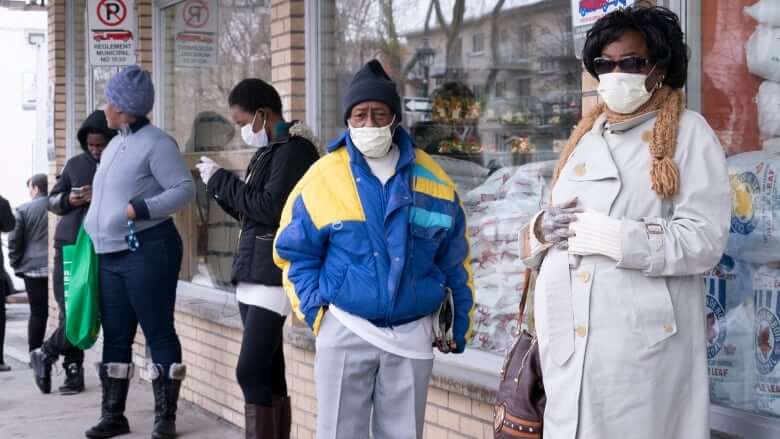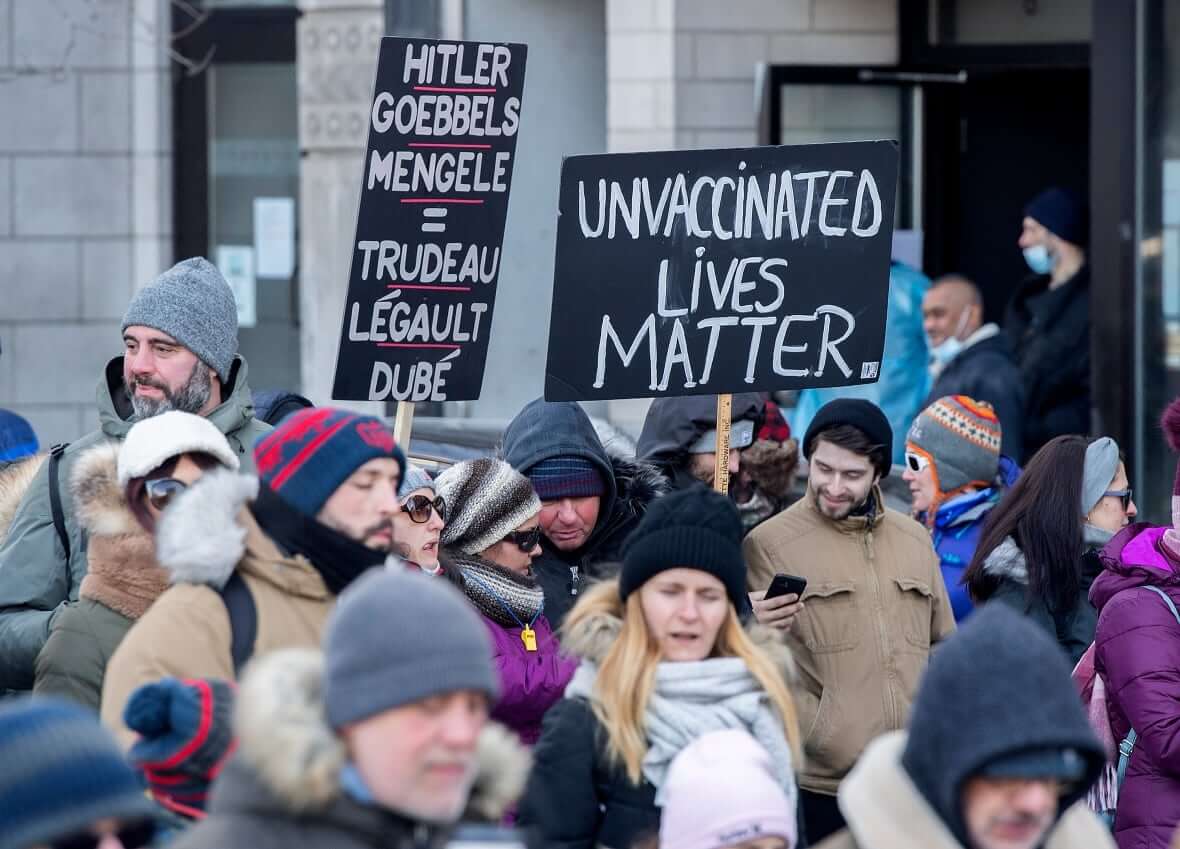Quebec’s unvaccinated need education — not a tax, advocates say

Last year, Stella Bailakis was on a mission to get others in her neighbourhood vaccinated against COVID-19.
She volunteered for Table de Quartier de Parc-Extension, going door-to-door to give out information and answer questions. And her efforts paid off.
“The people in this area speak different languages,” Bailakis said.
“Most of them listen to the news in their country. Once you have the opportunity to sit and chat with them, their views really turn around.”
Quebec Premier François Legault is planning to charge the unvaccinated a special tax, but his proposal is raising concerns among community advocates and experts alike who say the government should try other methods first — especially among marginalized populations whose distrust in authorities goes back generations.
“Before they go to the level of levelling taxes, all avenues need to be exhausted in terms of educating people,” said Mark Henry, head of the Jamaica Association of Montreal.
Quebec’s Black community has felt disadvantaged, ignored and treated unfairly for years and now is living under a premier who refuses to acknowledge systemic racism in the province, Henry said.
Rather than taking away people’s right to choose, Henry said, he wants the government to offer better financial support to community organizations.
“In order for us to get to our community, who trusts us more than the government, then we need additional resources,” he said.
“We need those resources to make new campaigns, to hire people, to do that door-to-door.”
Further eroding trust in government
Black Health Alliance executive director Paul Bailey said Legault’s proposed tax risks further entrenching inequities in Canada’s pandemic response and eroding trust in the government.
“We know that can further undermine public trust in governments or just the confidence in the vaccine, period,” Bailey said.
Provinces do not keep socioeconomic or race-based data when it comes to vaccination.

However, a report by the Black Opportunity Fund, African-Canadian Civic Engagement Council and Innovative Research Group found a 20-point gap between white and Black Canadians who had received at least one vaccine dose between May 18 to June 4, 2021, according to a survey of 2,838 respondents.
Early on in the pandemic, Montreal’s poorest and most racially diverse neighbourhoods were hit hardest by COVID-19 and that problem was echoed in many North American cities.
Montreal public health launched awareness campaigns, but vaccination rates remained low in hard-hit areas and advocates called for more accessible walk-in vaccine clinics in certain neighbourhoods.
“In parts of the country, let’s say in places like Toronto and Montreal, there are particular populations — Black, racialized, low- and very low-income — who have high COVID burden and lower COVID vaccination,” Bailey said.
“We know that they’re already living with the spectre of poverty and many other inequities, whether it be food insecurity, housing insecurity. And so for this specific population, applying a tax to them only further entrenches those inequalities.”
Plan to tax unvaccinated raises ethics concerns
Simon Bacon, a professor in behaviour medicine at Concordia University, said government threats like these may encourage people to dig their heels in even more.
“For those that aren’t vaccinated at the moment, the biggest issues that they are coming up with are the safety and the efficacy of the vaccine and these kinds of measures don’t address that,” Bacon said.
“If you don’t address the issue, I am not sure you’re going to get too far ahead.”
Vardit Ravitsky, a professor in bioethics at the Université de Montréal, said the pandemic has hit vulnerable and marginalized populations particularly hard.
“Those who choose not to get the vaccine, that’s not a homogenous population,” said Ravitsky. “Some have historical reasons for having this hesitation.”
Ravitsky said the government has not tried enough alternatives to ethically justify a tax on the unvaccinated.
“We still have not implemented vaccine passports for all non-essential services,” said Ravitsky.
“When you put pressure on a population, you want to put that pressure equitably across the population.”
Legault did not say when the payment would take effect or how much it would cost, but he did say it would be more than $50 or $100. Legault said details would be revealed “in the coming weeks.”
But for some, $100 is food on the table, said Ravitsky, and that’s why the government can’t simply charge a flat fee.
“Choosing a measure that applies very different types of pressure on different families is not the ideal choice at this point,” she said.








Redes Sociais - Comentários